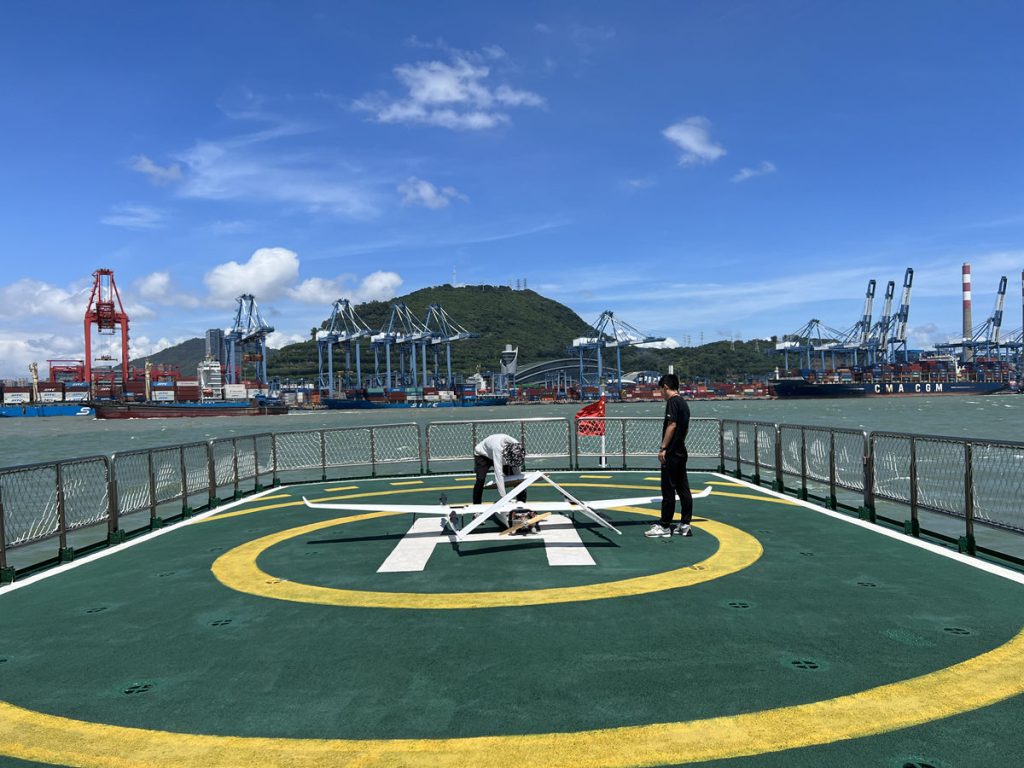What is a Maritime Drone? How is it Being Used?
Maritime drones, also known as sea drones or naval UAVs, have become essential tools in various maritime operations. From surveillance and search and rescue missions to surveys and inspections, these drones are proving to be invaluable assets for professionals and enthusiasts alike.
If you're curious about the capabilities of maritime drones and their applications across different industries, you've come to the right place. In this article, we'll explore the world of maritime drones, discussing their uses in various sectors and highlighting some of the top models available today.
Let's embark on an exciting journey of discovery together!

**What is a Maritime Drone?**
A maritime drone is an unmanned aerial vehicle (UAV) specifically designed to operate over water. Unlike traditional drones, they are built with durability and specialized features that allow them to handle the challenges of aquatic environments. These drones are equipped with waterproofing, corrosion-resistant materials, and buoyancy systems, making them capable of navigating through splashing waves.
They use advanced GPS and gyroscopes to maintain stability over vast water bodies, making them ideal for marine surveillance, research, and search and rescue missions. Their payloads are tailored for marine tasks, including high-resolution cameras, thermal sensors, and even sonar for underwater surveys.
**Types of Maritime Drones**
There are several types of maritime drones, each designed for specific purposes:
1. **Surface Drones**: These drones operate on the water's surface and are used for marine research, search and rescue, and capturing footage.
2. **Underwater Drones**: Designed for submersion, these drones are used for marine surveying, inspection, and environmental research.
3. **Hybrid Drones**: Combining the capabilities of both surface and underwater drones, these are versatile tools for exploration and research.
4. **Airborne Drones**: Though not directly associated with the maritime environment, airborne drones support maritime operations with long-range capabilities and high-resolution cameras.
**Benefits of Drone Technology in the Maritime Industry**
The use of drone technology in the maritime industry offers numerous advantages:
- **Enhanced Safety**: Drones can perform hazardous tasks without risking human lives.
- **Cost-Effectiveness**: Drones reduce operational costs by covering large areas quickly and efficiently.
- **Rapid Search and Rescue Operations**: Drones can swiftly cover large expanses of water, expediting search and rescue efforts.
- **Efficient Surveys and Inspections**: Drones equipped with high-resolution cameras and sensors can capture detailed images and videos, enabling faster and more accurate assessments.
**How are Drones Used in the Maritime Industry?**
Drones are used in a variety of ways within the maritime industry:
- **Maritime Patrol and Surveillance**: Drones help monitor and secure maritime borders using high-resolution cameras and infrared sensors.
- **Search and Rescue**: Drones assist in locating distressed vessels or individuals, providing real-time visuals to rescue teams.
- **Maritime Survey and Inspections**: Drones streamline these processes by capturing detailed data on maritime infrastructure.
- **Environmental Conservation**: Drones aid in monitoring marine ecosystems, detecting oil spills, and tracking changes in habitats.
**Factors to Consider When Choosing a Maritime Drone**
When selecting a maritime drone, consider the following factors:
- **Water and Weather Resistance**: Look for a drone with a high IP rating for protection against water and weather.
- **Range and Endurance**: Choose a drone with a flight range of at least 5 kilometers and a flight time of 30 minutes.
- **Remote Control Range**: A remote control range of at least 2 kilometers is ideal.
- **Camera and Sensor Capabilities**: Prioritize drones with 4K or higher resolution cameras and specialized sensors.
- **Real-Time Data Transmission**: Ensure the drone supports real-time data transmission for prompt decision-making.
- **GPS and Navigation Systems**: A reliable GPS system with RTK capability is essential for precise positioning.
**Best Maritime Drones (2023 Guide & Review)**
Some of the best maritime drones available include:
- **JOUAV CW-15**: Ideal for surveillance with an impressive flight time and video transmission range.
- **JOUAV CW-25**: Perfect for marine biology research with extended flight times and advanced camera capabilities.
- **JOUAV CW-007**: Excellent for maritime surveys with efficient coverage and modular design.
- **JOUAV PH-7E**: Top choice for search and rescue with thermal imaging and obstacle avoidance.
**How Much Does a Maritime Drone Cost?**
The cost of maritime drones varies widely depending on their size, capabilities, and intended use. Prices can range from $1,000 to $100,000 or more. Consumer-grade drones typically fall between $1,000 and $5,000, while professional-grade drones can cost between $10,000 and $50,000. High-end models for industrial and research applications may exceed $100,000.
**Maritime Drone Laws and Regulations**
Operating maritime drones requires adherence to local laws and regulations, including registration, operator certification, and compliance with flight restrictions. Always ensure you understand and follow the rules in your area.
**Future Trends and Innovations in Maritime Drones**
The future of maritime drones looks promising, with advancements in autonomy, swarm technology, extended range, and enhanced payloads. These innovations will continue to expand the potential applications of maritime drones across various industries.
**FAQ**
- **What are Drones Used for in Marine Biology?** Drones are used for aerial surveys, marine mammal research, habitat monitoring, and tracking marine species.
- **How Much Does Maritime Drone Service Cost?** Costs vary based on the type of service, complexity, and duration, ranging from $500 to $5,000 per day.
Whether you're a professional or an enthusiast, maritime drones offer a wide range of benefits and opportunities. With continuous advancements in technology, the future of maritime operations looks brighter than ever.
Gloss White Polypropylene Label
Gloss White Polypropylene Label,Frozen Pp Label,Glossy White Label,Polypropylene White Label
SOONTOMAX (TAISHAN) LABEL MATERIAL CO.LTD , https://www.stmlabel.com